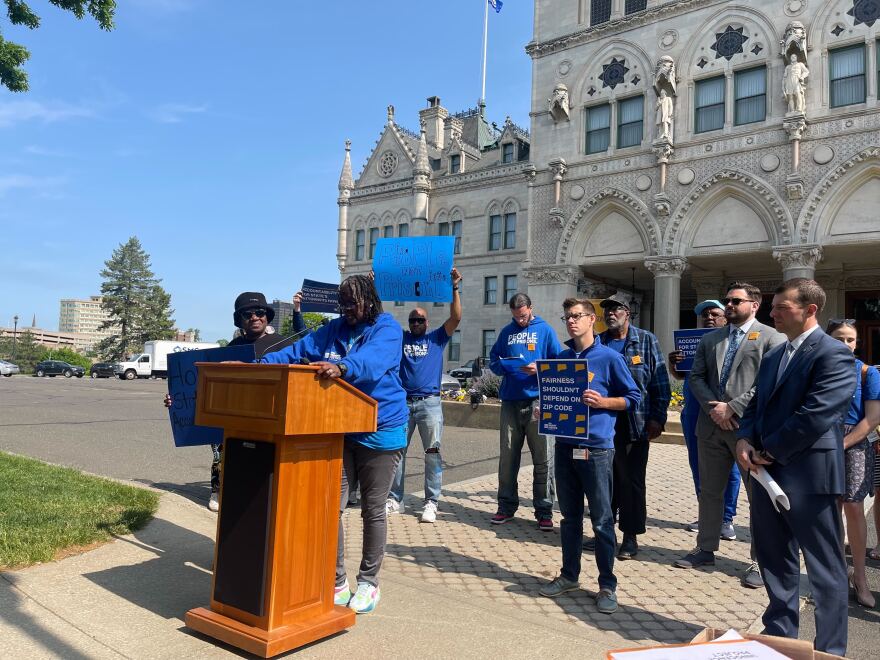Prison advocates rallied outside the Connecticut State Capitol on Tuesday ahead of a vote in the Legislature that could bring the state closer to criminal justice reform.
Two bills could create more oversight and protect children.
Senate Bill 1070 would establish more oversight over state prosecutors. Each attorney would have to testify on data to the Criminal Justice Commission annually. Reports on each attorney would summarize their performance every other year. Additionally, it would cap their term limit at five years instead of eight.
Senate Bill 1071 would ban deceptive police interrogation tactics on children. According to the ACLU of Connecticut, current practices include “depriving a child of food, sleep or other health needs; using or threatening to use force against a child; threatening to arrest and charge another person who has not committed a crime; lying about evidence of guilt, leniency or the law; telling a child about evidence and inducing them to make the evidence part of their statement.”
SB 1071 has already passed the Senate.
Nathaniel Erb is a state policy advocate for the Innocence Project in Connecticut. Erb said Connecticut has fallen behind on criminal justice, and needs to pass these bills to catch up.
“[Connecticut] has now let seven other states pass it by, and some of those states have had no convention cases and have been in really deep, deep red areas such as Utah and Indiana, So this is something that certainly Connecticut can take a stand on now.”
Erb said the Innocence Project has identified at least seven false confessions in Connecticut — but there are likely more in the state’s outdated court system.
Connecticut ACLU Public Policy and Advocacy director Claudine Constant said the bills would keep innocent people out of the justice system.
“These two bills focus on what we call the front end of the criminal legal system, which is really the processes and the systems in place that happen and get people entangled within incarceration or just the system of policing in general,” Constant said.


